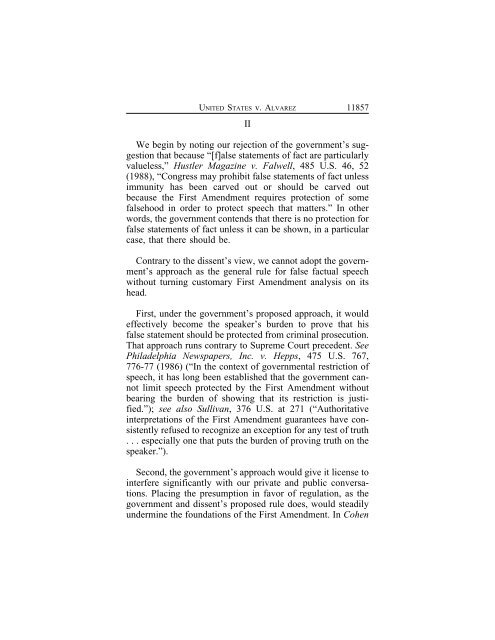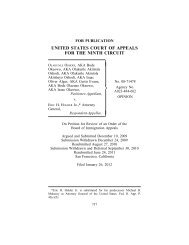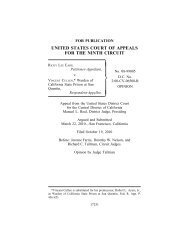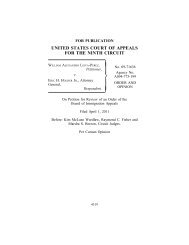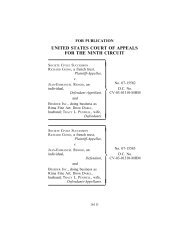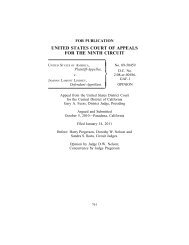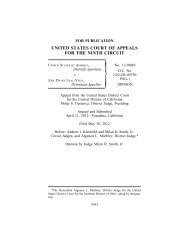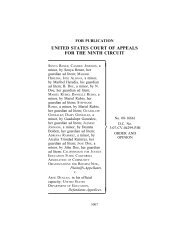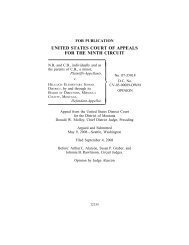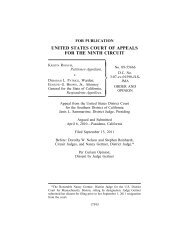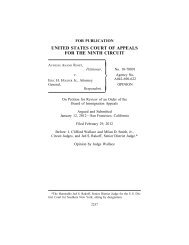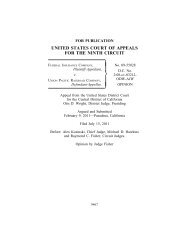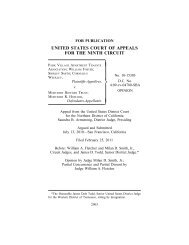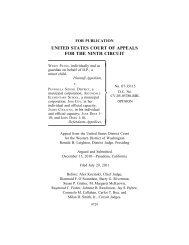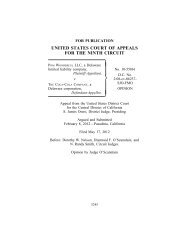USA v. Xavier Alvarez - Ninth Circuit Court of Appeals
USA v. Xavier Alvarez - Ninth Circuit Court of Appeals
USA v. Xavier Alvarez - Ninth Circuit Court of Appeals
You also want an ePaper? Increase the reach of your titles
YUMPU automatically turns print PDFs into web optimized ePapers that Google loves.
UNITED STATES v. ALVAREZ<br />
II<br />
11857<br />
We begin by noting our rejection <strong>of</strong> the government’s suggestion<br />
that because “[f]alse statements <strong>of</strong> fact are particularly<br />
valueless,” Hustler Magazine v. Falwell, 485 U.S. 46, 52<br />
(1988), “Congress may prohibit false statements <strong>of</strong> fact unless<br />
immunity has been carved out or should be carved out<br />
because the First Amendment requires protection <strong>of</strong> some<br />
falsehood in order to protect speech that matters.” In other<br />
words, the government contends that there is no protection for<br />
false statements <strong>of</strong> fact unless it can be shown, in a particular<br />
case, that there should be.<br />
Contrary to the dissent’s view, we cannot adopt the government’s<br />
approach as the general rule for false factual speech<br />
without turning customary First Amendment analysis on its<br />
head.<br />
First, under the government’s proposed approach, it would<br />
effectively become the speaker’s burden to prove that his<br />
false statement should be protected from criminal prosecution.<br />
That approach runs contrary to Supreme <strong>Court</strong> precedent. See<br />
Philadelphia Newspapers, Inc. v. Hepps, 475 U.S. 767,<br />
776-77 (1986) (“In the context <strong>of</strong> governmental restriction <strong>of</strong><br />
speech, it has long been established that the government cannot<br />
limit speech protected by the First Amendment without<br />
bearing the burden <strong>of</strong> showing that its restriction is justified.”);<br />
see also Sullivan, 376 U.S. at 271 (“Authoritative<br />
interpretations <strong>of</strong> the First Amendment guarantees have consistently<br />
refused to recognize an exception for any test <strong>of</strong> truth<br />
. . . especially one that puts the burden <strong>of</strong> proving truth on the<br />
speaker.”).<br />
Second, the government’s approach would give it license to<br />
interfere significantly with our private and public conversations.<br />
Placing the presumption in favor <strong>of</strong> regulation, as the<br />
government and dissent’s proposed rule does, would steadily<br />
undermine the foundations <strong>of</strong> the First Amendment. In Cohen


